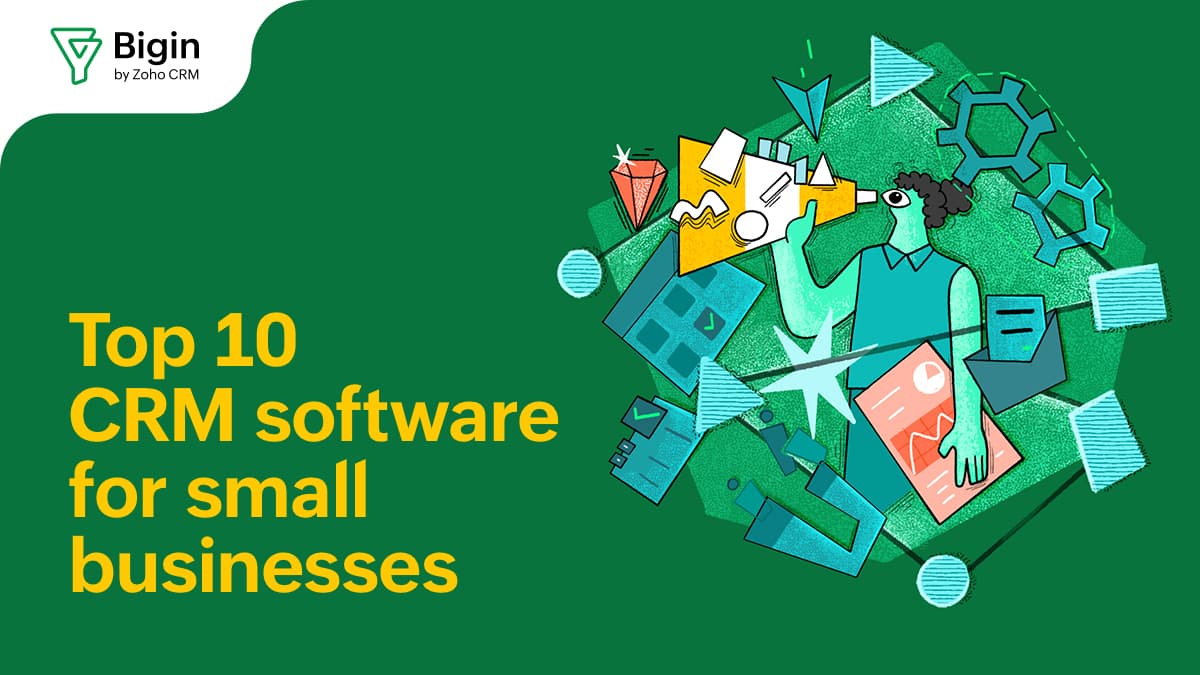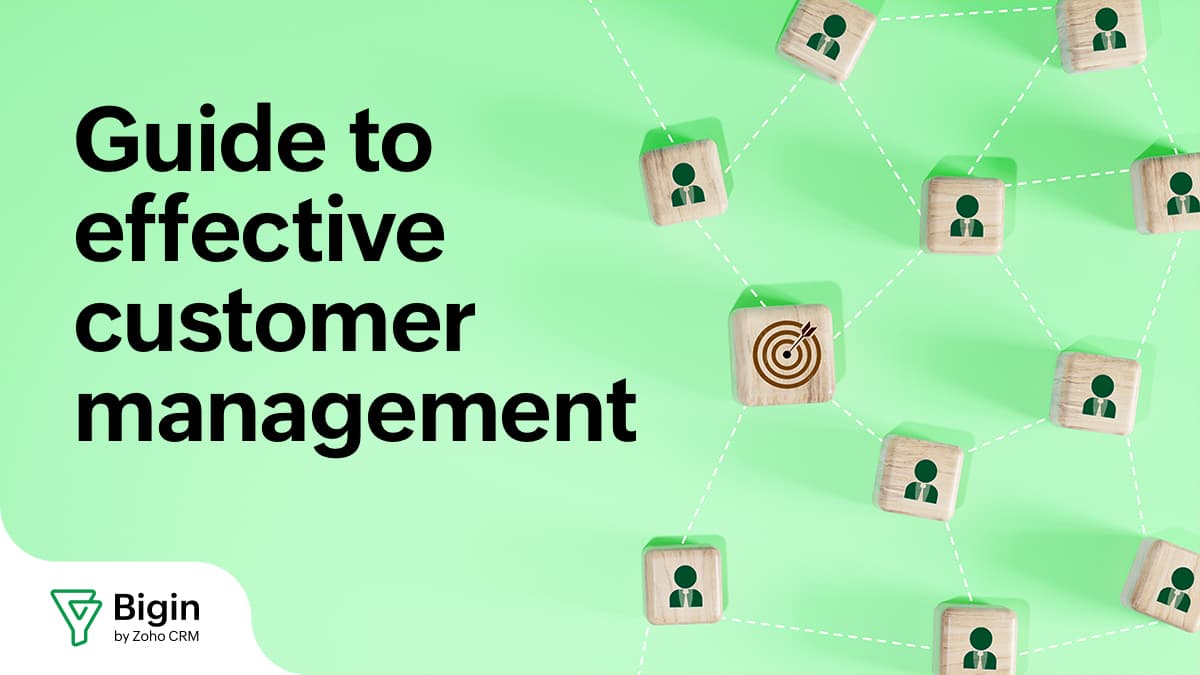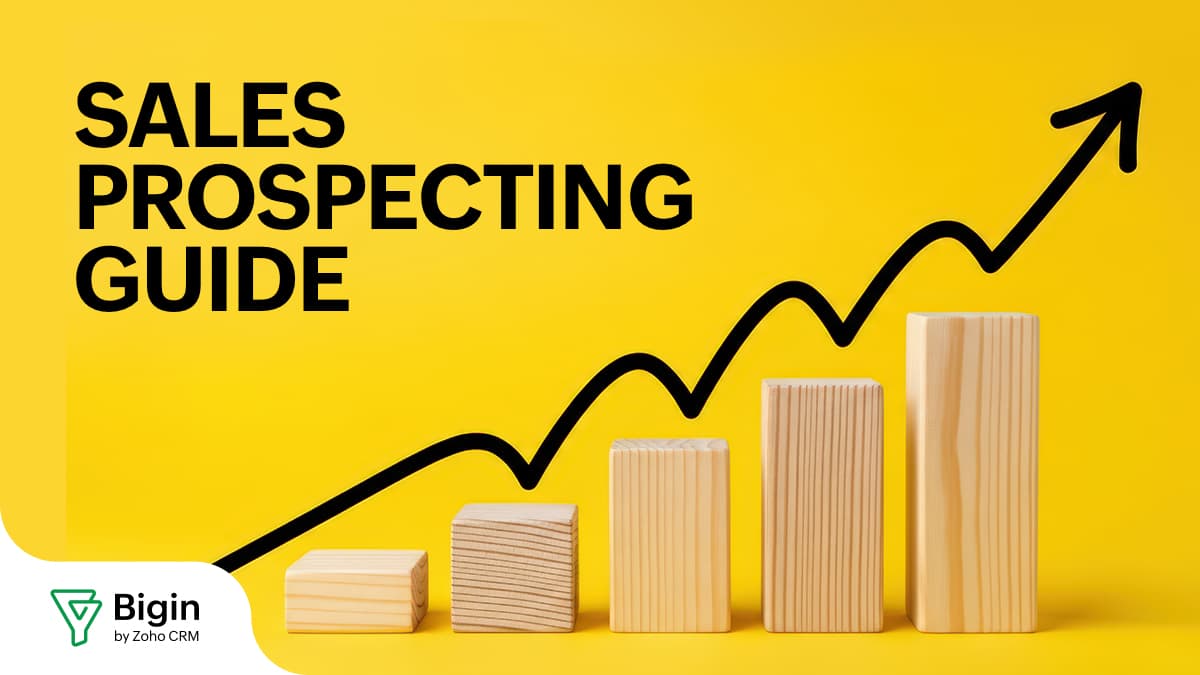Why now is the perfect time for small businesses to adopt sales intelligence
- Published : July 30, 2025
- Last Updated : July 30, 2025
- 257 Views
- 7 Min Read

If you own or manage a small business, you know the world of sales is changing fast. New technologies, shifting customer expectations, and fierce competition mean you can’t afford to rely on guesswork or outdated tactics. Here’s the good news: sales intelligence tools are no longer reserved for big corporations with deep pockets. In fact, right now is the perfect time for small businesses to adopt sales intelligence, and those who do will gain a serious edge.
In this article, you’ll discover what sales intelligence really means, why it’s more accessible than ever, and how it can transform your sales process. We’ll break down the benefits, tackle common concerns, and share practical tips to help you get started. So let's get cracking!
Understanding sales intelligence: What it is and why it matters
Before we get into the “why now,” let’s clarify what sales intelligence actually is. You might be wondering: is it just another buzzword, or does it offer real value?
What is sales intelligence?
Sales intelligence refers to the collection, analysis, and application of data to improve sales outcomes. Think of it as having a digital assistant that gathers insights about your prospects, customers, the market as a whole and then helps you use that information to close more deals.
Here’s what sales intelligence typically includes:
- Real-time data on leads and prospects (company size, recent news, decision-makers)
- Alerts about buying signals or changes at target accounts
- Tools for tracking engagement (emails opened, calls made, meetings booked)
- Integration with your CRM for a unified view of your pipeline
In short, sales intelligence gives you the information you need to approach the right people, at the right time, with the right message.
Why does sales intelligence matter for small businesses?
You know better than anyone that small businesses often have limited resources. You can’t afford to waste time chasing dead-end leads or missing out on hot opportunities. Sales intelligence levels the playing field by:
- Making your outreach more targeted and efficient
- Helping you prioritize high-potential prospects
- Giving you insights that used to be available only to large enterprises
But there’s more. Sales intelligence goes beyond lead generation by assisting in relationship building, customizing your approach, and ultimately increasing business success.
Why now is the perfect time to adopt sales intelligence
You might be thinking, “Sales intelligence sounds great, but why is now the right moment to invest?” Let’s break down the key reasons.
Affordable, accessible technology
Not long ago, advanced sales tools were expensive and complex. Only big companies could justify the investment. Fast forward to today: cloud-based platforms and subscription models have made sales intelligence affordable for businesses of all sizes.
For example, tools like Apollo.io, LinkedIn Sales Navigator, and our very own Bigin offer robust features at price points that work for small teams. You can start small, scale up as you grow, and avoid hefty upfront costs.
Buyers are more informed (and harder to reach)
Here’s the deal: your prospects are doing their homework. By the time you reach out, they’ve likely researched your company, compared competitors, and formed opinions. Generic sales pitches just don’t cut it anymore.
Sales intelligence helps you stand out by giving you context, so you can tailor your outreach and show you understand their needs. Imagine reaching out to a prospect right after they announce a new funding round or referencing a recent product launch in your email. That’s the kind of relevance that gets responses.
Remote selling is the new normal
The pandemic accelerated the shift to remote work and virtual selling. For small businesses, this means your sales team needs to be nimble, data-driven, and tech-savvy. Sales intelligence tools empower remote teams to:
-Collaborate on lead research and account planning
-Track engagement and follow-ups from anywhere
-Access up-to-date data without being tied to an office
In other words, sales intelligence is tailor-made for the modern, distributed workforce.
Competition is heating up
Let’s not sugarcoat it: small businesses face more competition than ever. New startups, global players, and digital-first companies are all vying for your customers’ attention. If you’re still relying only spreadsheets and cold calls, you’re at a disadvantage.
Sales intelligence helps you move faster, spot opportunities sooner, and out maneuver competitors who are stuck in the past.
Key benefits of sales intelligence for small businesses
Now that you know why the timing is right, let’s get specific. What can sales intelligence actually do for your business?
Find and prioritize high-quality leads
Not all leads are created equal. Sales intelligence tools help you:
- Identify companies that fit your ideal customer profile
- Surface decision-makers and influencers within target accounts
- Score and prioritize leads based on engagement, intent, or fit
For example, imagine you run a marketing agency focused on SaaS startups. With sales intelligence, you can filter for companies that recently raised funding, expanded their team, or launched a new product, these are all signals that they might need your services.
Personalize outreach for better results
Here’s where sales intelligence really shines. Instead of sending generic emails, you can craft messages that speak directly to your prospect’s situation.
If you know a company just hired a new VP of Marketing, you can reference that change and offer to help them hit the ground running. If you see a prospect engaging with your website or content, you can follow up with relevant resources.
Personalization has been shown to increase response rates and establish trust, so its not just something we should take lightly.
Shorten your sales cycle
Time is money, especially for small businesses. Sales intelligence streamlines your process by:
- Highlighting the most engaged prospects
- Alerting you to buying signals (like job changes or company growth)
- Automating research and data entry
The result? Your team spends less time chasing unqualified leads and more time closing deals.
Improve forecasting and decision-making
Accurate data leads to better decisions. Sales intelligence platforms often include reporting and analytics features that help you:
- Track which outreach strategies are working
- Identify bottlenecks in your pipeline
- Forecast revenue with greater confidence
Armed with these insights, you can double down on what’s working and adjust quickly when things change.
Strengthen customer relationships
Sales involves more than just closing new deals, its about cultivating lasting relationships.
Sales intelligence helps you:
- Stay on top of key contacts and account changes
- Set reminders for follow-ups and check-ins
- Spot upsell or cross-sell opportunities
For instance, if a customer’s company just expanded into a new market, you can proactively reach out with solutions tailored to their new needs.
Overcoming common objections: “Is sales intelligence really for us?”
It’s normal to have questions or concerns before adopting new technology. Let’s address some of the most common objections small businesses raise.
“It sounds too expensive for a small business.”
This is a fair concern, but the landscape has changed. Many sales intelligence tools offer tiered pricing, free trials, or even freemium versions. You can start with basic features and upgrade as you see results.
Think of it as an investment: even a modest increase in close rates or deal size can quickly cover the cost.
“We don’t have a dedicated sales team.”
No problem. Sales intelligence isn’t just for large sales teams. Even if you’re a founder, owner, or wearing multiple hats, these tools can save you time and help you focus on the most promising opportunities.
In fact, solo entrepreneurs and small teams often see the biggest impact, because every lead counts.
“It seems complicated to set up.”
Here’s the truth: most modern sales intelligence platforms are designed for ease of use. Many integrate directly with popular CRMs like Bigin, Zoho CRM etc. so you don’t have to start from scratch.
Plus, vendors typically offer onboarding support, tutorials, and customer success resources to help you hit the ground running.
“Will it really make a difference for our business?”
With sales intelligence, you can access real-time data and insights about your target market, allowing you to identify potential customers who are most likely to be interested in your products or services.
This targeted approach can save you time and resources, as you can focus your efforts on those who are most likely to convert into customers.
Additionally, by understanding your customers' needs and pain points, you can tailor your sales pitch and offer personalized solutions, increasing the chances of closing deals.
How to get started with sales intelligence
Here’s a step-by-step guide to adopting sales intelligence in your small business.
Step 1: Define your goals and ideal customer profile
Start by clarifying what you want to achieve. Are you looking to:
- Generate more leads?
- Improve conversion rates?
- Shorten your sales cycle?
- Upsell existing customers?
Next, define your ideal customer profile (ICP). What industries, company sizes, or roles are you targeting? The more specific you are, the better your sales intelligence tool can help.
Step 2: Research and select the right tool
Not all sales intelligence platforms are created equal. Consider factors like:
- Budget and pricing structure
- Integration with your existing CRM or tools
- Data coverage (industries, regions, company sizes)
- Ease of use and support
Popular options for small businesses include Apollo.io, LinkedIn Sales Navigator, ZoomInfo. Take advantage of free trials to test drive features and see what fits your workflow.
Step 3: Integrate and train your team
Once you’ve chosen a tool, integrate it with your CRM and other sales systems. Most platforms offer step-by-step guides or onboarding support.
Don’t skip training: even the best tool is only as effective as the people using it. Schedule a team session to walk through key features, best practices, and how to interpret insights.
Step 4: Start small and iterate
You don’t need to overhaul your entire sales process overnight. Start by using sales intelligence for one or two key activities, like lead research or personalized outreach. Track your results, gather feedback, and expand your usage as you see success.
Step 5: Measure and optimize
Set clear metrics for success (response rates, meetings booked, deals closed) and review them regularly. Use the analytics features in your sales intelligence tool to spot trends, identify what’s working, and make data-driven adjustments.
Don’t wait,make sales intelligence your secret weapon
Sales is changing, and small businesses need to keep up. Sales intelligence used to be something only big companies could afford. That’s not the case anymore. The tools are cheaper, easier to use, and actually helpful.
If you're trying to grow, find better leads, or just save time, this is the right moment to get started. The tech is there. The benefits are real. You don’t need a huge team or budget to see results.
So if you're serious about selling smarter, start now. You'll be glad you did.
 Anubhav
AnubhavAnubhav is a product marketer with an insatiable thirst for all things content marketing, technology, and SaaS. His expertise lies in crafting compelling narratives that resonate with audiences and drive business growth. With a deep-rooted interest in entrepreneurship, Anubhav closely follows the latest industry trends and innovations, constantly seeking new ways to elevate marketing strategies.


